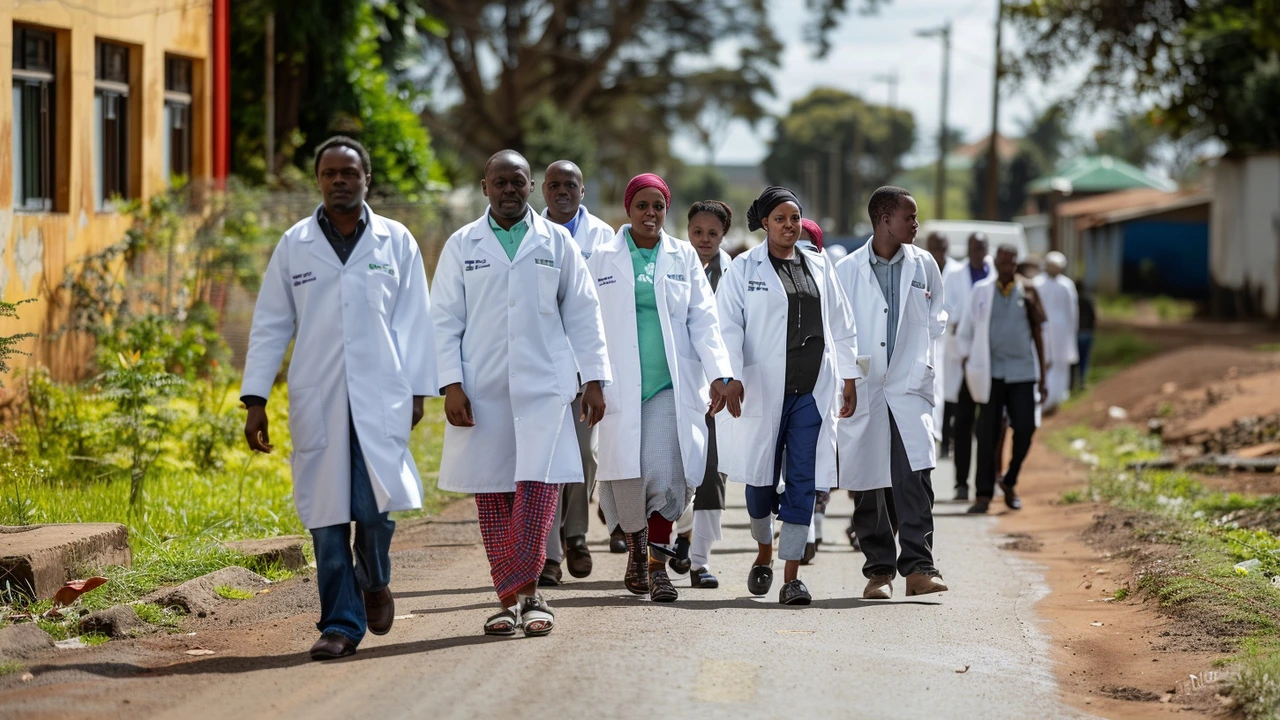Overview of the Kenyan Doctors' Strike and Its Resolution
On May 8, 2024, the long-standing strike by Kenyan public hospital doctors came to a conclusive end as the Kenya Medical Practitioners, Pharmacists, and Dentists Union (KMPDU) signed an agreement with the government. This strike, initiating on March 15, 2024, revolved around critical issues such as unpaid salary arrears based on a 2017 collective bargaining agreement, the need for hiring more trainee doctors, and demands for improved medical insurance coverage. The strike had a profound impact on Kenya's healthcare system, leading to a distressing backlog of patients and accelerated spread of diseases, notably after the country suffered from severe floods.
The 2017 Collective Bargaining Agreement and Its Implications
The heart of the contention was the 2017 collective bargaining agreement which promised specific salary increments, timely payments, and better working conditions for public health practitioners. Despite being legally binding, the implementation lagged, leading to widespread discontent among medical professionals. This agreement, crucial for maintaining a motivated and efficiently functioning workforce in hospitals, was not fully honored, thus instigating the strike.
Detailed Analysis of Strike Impacts
The repercussions of the strike were stark. Public hospitals, already grappling with funding shortages and staffing constraints, were ill-prepared to handle an influx of patients, particularly when compounded by seasonal challenges like flooding. The strike period saw an alarming increase in patient wait times and a noticeable surge in communicable diseases such as cholera. The healthcare delivery system, stretched to its limits, called for immediate action to resolve the impasse.
Terms of the Agreement
The resolution came with several crucial assurances from the government. Key among these was the full protection of workers' rights as stipulated in the collective bargaining agreement. The government also committed to resolving the hiring of interns within 60 days, a move expected to alleviate some of the pressures on the existing medical staff. Additionally, enhancement of medical insurance coverage was promised, providing a much-needed boost to the welfare of the health workers.
Looking Forward: Implications for the Healthcare System
With the doctors returning to work, there is a collective sigh of relief among the Kenyan population. The resolution not only marks an end to immediate health service interruptions but also sets a precedent for government accountability and the importance of adhering to agreements. This development is anticipated to restore the faith in public health services, boost morale among healthcare providers, and potentially drive improvements in patient care quality and accessibility.
Future Challenges and Expectations
Though the strike has ended, the road ahead remains daunting. The Kenyan healthcare system faces chronic challenges such as underfunding, limited resources, and an ever-growing need for skilled medical staff. Fulfilling the promises of the recent agreement is just the first step towards sustainable improvement. Ongoing dialogue, continuous monitoring, and effective implementation of health policies will be critical to ensure that similar crises are averted in the future. Ensuring timely payments, expanding insurance coverage, and bolstering training programs will be essential for building a resilient public health infrastructure capable of withstanding future challenges.

